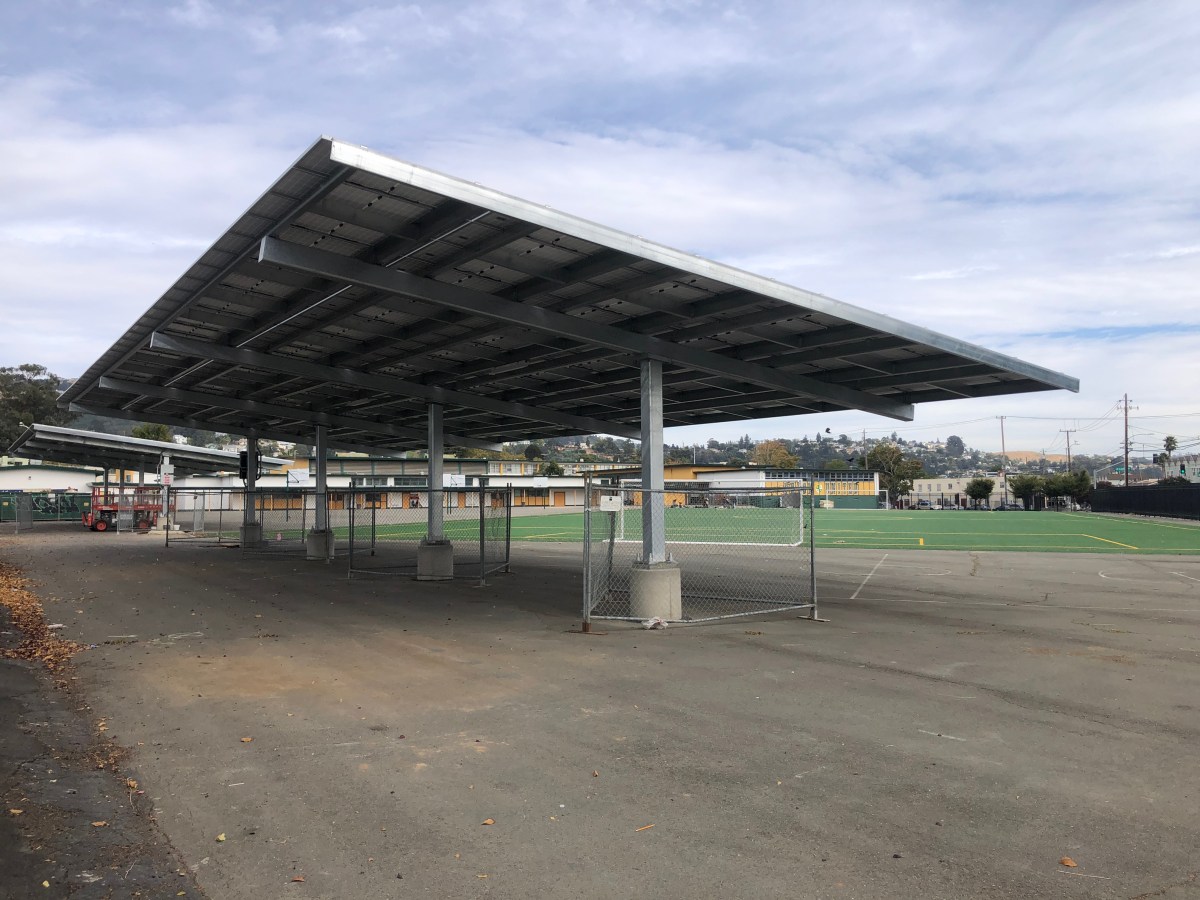The California Public Utilities Commision, the regulatory agency overseeing companies that provide electricity, gas, and other resources to homes, businesses, and consumers, is considering a proposal that could drastically affect the future of solar in California.
Under two existing CPUC programs—virtual net energy metering, or VNEM, and net energy metering aggregation, or NEMA—owners of large properties with multiple energy meters who have solar panels installed can financially benefit by subtracting the cost of the energy they create from their overall energy bills. Many consumers use this savings to offset the cost of installing the solar panels.
The commission is set to vote on a proposal supported by some utility companies that would require large property owners who utilize these programs to sell the energy they generate back to the utility companies for pennies on the dollar and then buy energy back at a higher retail price. The proposed change would apply only to future solar installations. Existing customers who benefit from the current rules would be allowed to continue under that program for up to 20 years from the time they applied for their project. After this 20 year period, they would then be subject to the new rules.
Experts say the changes will reduce the financial benefit of solar systems, discouraging everyone from apartment building owners to school districts from installing them. Energy advocates, school officials, and leaders across the Bay Area have spoken out in opposition to these proposed changes, saying they will detrimentally impact Oakland’s residents and schools, as well as California’s climate goals.
“Under this decision, there will be no more solar, most likely, for multifamily housing, for co-ops, for condos, for schools, for farms, for resiliency hubs,” said Igor Tregub, strategic partnerships director for Reimagine Power, a consulting company that advocates for diversified and localized energy systems. “It would just be a sunk cost when school districts, property owners, renters, and everyone else are already grappling with an ever-rising utility burden.”
Over one hundred elected officials across California have called on the CPUC to reject changes to the net metering programs for multi-metered properties. Additionally, environmental advocates, farm groups, and education leaders have also raised concerns.
The Public Utilities Commission is set to vote on the proposal in their Nov. 2 meeting.
In December 2022, the CPUC approved a similar controversial adjustment to a solar tariff program for single-family home owners. The change reduced the benefit of having solar panels installed on single-metered properties, encouraged homeowners to purchase batteries, and impacted the ability for home-owners to pay off their solar installation.
Many property owners install solar panel systems knowing they will pay for themselves in a few years time. In multifamily apartment buildings, renters can benefit from these programs with a reduction in their electricity bill, which makes these units not only more environmentally friendly, but also more affordable. The programs also have helped reduce energy costs for school districts.
On Oct. 2, several Oakland Unified School District board members joined other school boards, clean energy advocates, and Assemblymember Mia Bonta at a press conference at Fremont High School to urge the CPUC to reject the proposal.
“To change the rules now, after school districts have made important investments to take action around the extreme weather we experience and the renewable energy programs that we must invest in, is just simply wrong,” said Bonta. “They need to be able to know and understand that when they invest in solar, that they are able to capture the savings associated with that for our children, for our teachers, for our educators and for our community.”
OUSD began installing solar and battery storage at 16 school sites as part of their Solar Initiative Project in the beginning of the year. This adds to their already existing solar units at several other school sites. The district hopes to achieve “grid neutrality” by 2030, meaning it generates just as much energy from its own solar panels as it consumes from the grid. But if the new CPUC proposal is approved, it could create a significant barrier to that goal. And it might discourage other school districts from doing the same.
“The changes that the CPUC is considering may make [OUSD green energy] projects more expensive, therefore taking dollars directly away from the classroom.” said OUSD Director Valerie Bachelor.
The proposal also could impact the state’s climate goals. Governor Gavin Newsom has voiced support for ambitious clean energy projects and has recently signed several climate bills into law. Climate advocates have called on Newsom to oppose the CPUC’s proposed rules change, but Newsom has not commented publicly on the proposal.
“Many struggling California families have to make the choice between paying rent and paying their utility bills,” said Jessica Tovar, a community organizer with the Oakland-based Local Clean Energy Alliance. “Local solar can keep the power on, the rates down, reduce pollution and create clean energy jobs. We need the CPUC to start making decisions to protect vulnerable communities.”

